10 books you must read
The older my children get the more I think about what wisdom I can impart on them, which will help them most throughout their lives. Whilst I don’t have all the answers (and probably never will), fortunately there are plenty of others who have been down life’s path and have plenty of wisdom to share. Where does one find this “life advice”? In books of course! I’ve read a few in my time, so here are a few of my top picks so far*.
*Disclaimer: There are many, many more I would recommend, but these ones deal with the big (but often common) topics, which I hope will answer many of their questions about life.
1. The Richest Man in Babylon by George S. Clason
I hate math. Throughout high-school I always struggled with the subject, and by the time I did my Higher School Certificate the teachers and I were at peace that I just needed to do the level of math which would allow me to pass my final exam. And so began my studies of the subject, Maths In Society. This was one of the best things to happen in my last year of high school (after my first boyfriend, for different reasons of course…). I learnt how to do my tax, accumulate compound interest, build a house, calculate distance, and so much more useful stuff than substituting a bunch of letters for numbers (known to everyone else as Algebra). The Richest Man in Babylon is the perfect book for people like me who “don’t do figures”, but need to know what happens if you don’t take care of your money (spoiler alert: someone else will take care of it for you, usually by swindling it out of you). Written as a series of stories and parables, this book is packed with life lessons, but remains engaging and entertaining from beginning to end. It’s a story… about money.
2. Big Magic: Creative Living Beyond Fear by Elizabeth Gilbert
This non-fiction book intimately details parts of Elizabeth Gilbert’s journey as an author/artist. There are so many gems in this book, and I guarantee everyone will get something different out of it. The key take-aways for me were Elizabeth’s confirmation that you don’t need to use your art as a career. It’s completely ok if it’s something you do on the side (as often as you can), whilst the bills are paid by waiting tables or doing whatever you need to do to get by and still create. This really resonated for me, because for years I have seen my writing as an all-or-nothing pursuit. Society suggests if you can’t make money out of it, why bother, right? Wrong. When you love something and feel compelled to do it, then do it. Even if you have to support yourself in other ways until you “make it” or so you can continue to do it “on the side”. As soon as we attach money to making art, our motives change. We start to pre-empt what people want – what’s “commercial”. This is where fear kicks in. Fear of being rejected, fear of not being able to make enough money from our art to support ourselves, etc. Remove the fear, and we’re free.
3. A Fortunate Life by A.B. Facey
The book everyone (especially Australians) should read to understand the adversity people experienced and resilience they demonstrated. We’ve come a long way over the last century, but the irony of the title demonstrates this man’s gratitude – despite the hardships – for his experiences and “life lessons”.
Everyone should read this book at least once in their lives. Ideally as a teenager, then as an adult, to get two completely different perspectives of how Anne and her parents dealt with an incomprehensible situation.
5. High Performance Habits: How Extraordinary People Become that way by Brendon Burchard
This book changed my life, because it changed my perspective. I’m a big believer that the “lens” we choose to look through in life (and yes, it’s our choice) completely influences our experience within the world.
6. Getting Things Done by David Allen
David Allen’s brain works in a completely different way to mine. His systemic approach to organization and productivity is on another level. Packed with case studies, actionable frameworks, as well as inspiring quotes, this book will set a rocket under your backside. Biggest take-away for me was making decisions about activities. They don’t all need to be done straight away, but decide what, how, when and move on.
7. The Happiness Project by Gretchen Rubin
This charming book documents Gretchen Rubin’s “epiphany” on a bus one rainy afternoon, to dedicate a year of her life to a Happiness Project. Every month she selected a different theme: Boost Energy, Remember Love, Aim Higher, Lighten Up, Be Serious About Play, Make Time for Friends, Buy some Happiness, Contemplate the Heavens, Pursue a Passion, Pay Attention, Keep a Contented Heart, and Boot Camp Perfect. Gretchen is an avid reader, and The Happiness Project bursts with inspiring ideas, anecdotes and beautiful quotes, which will encourage anyone to create their own Happiness Project, even if just for a week or a month.
8. Think and Grow Rich by Napoleon Hill
This book is often described as the first “motivational/self-development style book. Drawing on stories from renowned “successful” people such as Andrew Carnegie, Henry Ford, Thomas Edison, and many others, this book details a number of different strategies these people employed to get where they did. Whilst money is often the motivation for many of the actions suggested in this book, these principles could easily by applied to any area of life.
9. Success Habits by Napoleon Hill
Written in the same engaging style as Think and Grow Rich, Success Habits is delivered in a radio-program style (originally a series of radio talks delivered in Paris, Missouri), or like a collection of short lectures. Packed full of gems derived from personal anecdotes, delivered in a conversational style, this book brims with inspiration and motivational advice on every page.
10. Rebecca by Daphne Du Maurier (or in fact anything by Du Maurier)
It’s impossible for me to pick a “favourite” Daphne Du Mauier book, but Rebecca is a fantastic introduction to Du Maurier’s style. Du Maurier has an innate ability to create atmosphere and suspense from simple things, such as birds or an apple tree. Her character development is on-point, as is her approach to dialogue and the relationships that evolve between her characters. You can’t go wrong with any of her books.
What would make your Top 10 Book List? I’d love to know – comment below…



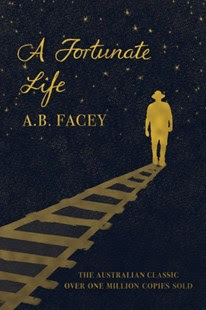


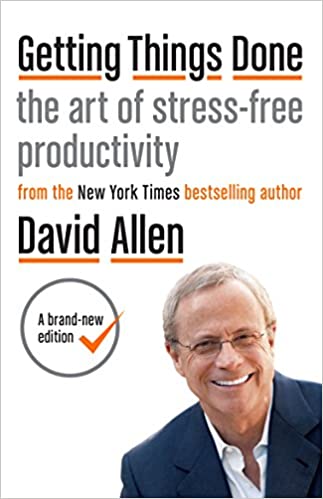
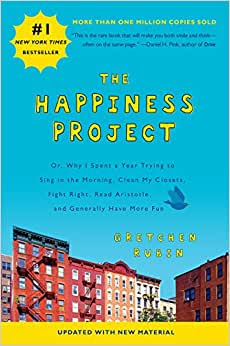
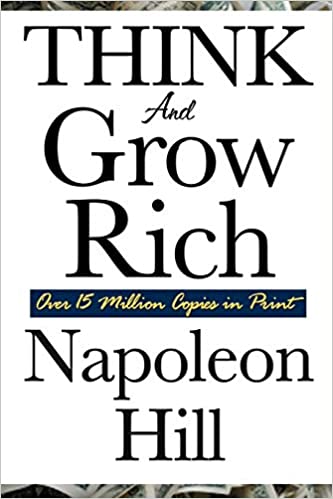


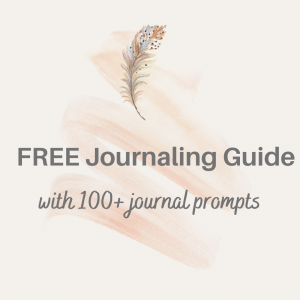
Leave a Reply